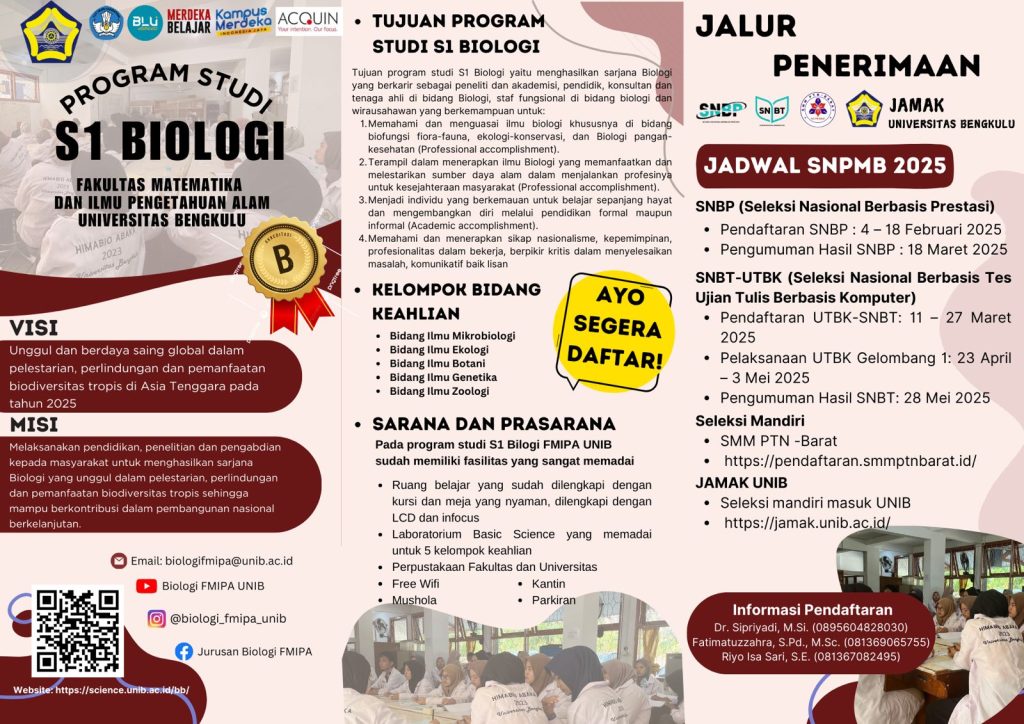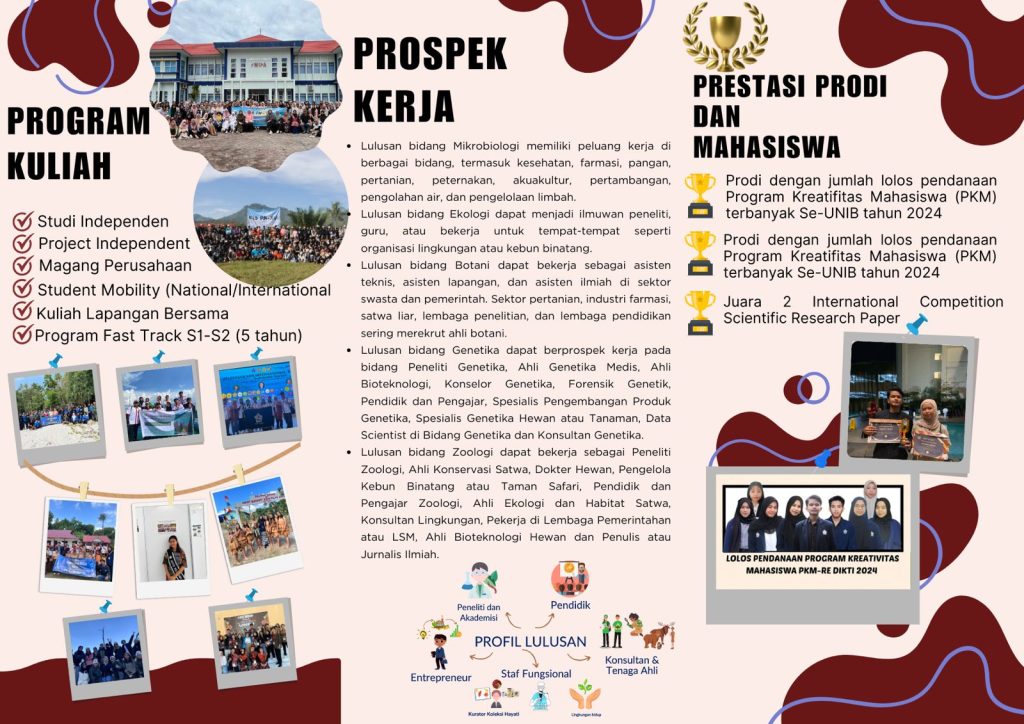
Potential and Conservation of Amphibians in Bengkulu Highlighted in Public
Lecture, Delivered by German Researcher
Bengkulu, August 21, 2024 – The extraordinary potential and challenges of amphibian conservation in Bengkulu became the main topic in a public lecture held at Bengkulu University on Wednesday (21/08/24) at the UNIB Integrated Services Building (GLT). The event featured Dr. rer. Nat. Umilaela Arifin, a researcher from the Museum of Nature Hamburg Leibniz Institute For the Analysis Of Biodiversity Change, Germany, who shared deep insights into biodiversity and the importance of amphibian protection in the region.
Dr. Umilaela also highlighted the threats faced by amphibian populations in Bengkulu. Deforestation, land use change, and water pollution are the main factors threatening their survival. She emphasized the importance of collaboration between researchers, government, and local communities to protect these species.
The public lecture was attended by dozens of undergraduate and postgraduate Biology students of FMIPA UNIB and Biology Education students of FKIP UNIB. This activity is a collaboration between the Department of Biology FMIPA and Education Biology FKIP, in addition to organizing public lectures, it also organizes training on how to research methods and Amphibian conservation practices. The training activities were also attended by undergraduate and postgraduate Biology students and several Biology Junior Lecturers.
The training was held in the afternoon at 13.30 WIB and continued for a full day on August 22. The training activities were followed with enthusiasm and joy by the participants. Dr. Umilaela invited participants to contribute to environmental conservation efforts. She also said that amphibian conservation is not only locked in adult frogs but also in the tadpole stage.
With its rich biodiversity, Bengkulu has the potential to become the center of amphibian conservation in Indonesia. However, close cooperation between all parties is needed to ensure that this ecological treasure remains sustainable for future generations.




